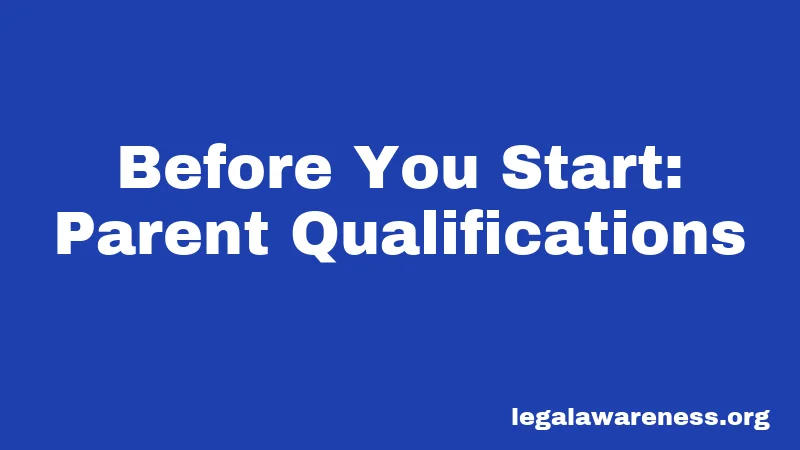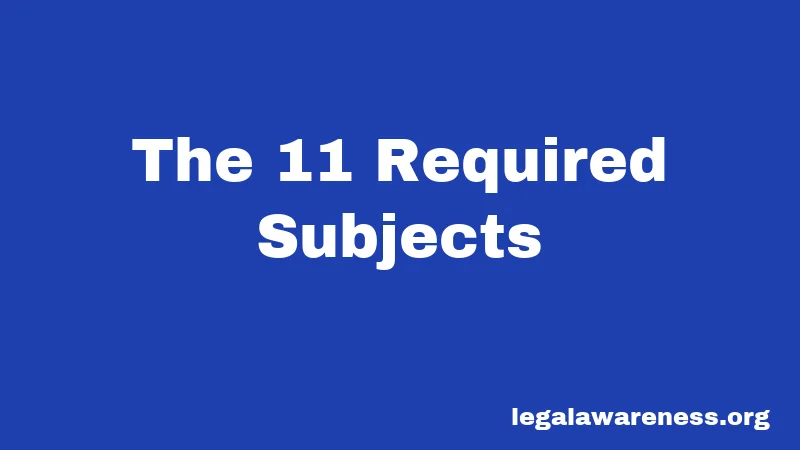Washington Homeschool Laws in 2026: Your Complete Getting-Started Guide
Most people don’t realize how much freedom Washington gives homeschoolers. Seriously, it’s pretty amazing. The state actually protects homeschool families and lets parents make a lot of their own decisions. But there are still rules you need to follow.
If you’re thinking about homeschooling your kids in Washington, you’ll want to know exactly what the law requires. The good news? It’s way less strict than many other states. Let’s walk through everything you need to know to get started the right way.
What Is Home-Based Instruction?

Washington calls homeschooling “home-based instruction” (or HBI). Pretty straightforward, right? It basically means your child learns at home, with you or another approved person as the teacher.
Here’s what makes Washington special: the law actually respects how homeschooling works. The state knows homeschooling is different from regular classroom teaching. It’s usually more personal, more flexible, and more hands-on. So Washington’s laws are written to give families breathing room to do things their own way.
You’re not alone in this either. About 6% of Washington kids are homeschooled, which adds up to thousands of families statewide.
Understanding Your Two Options
Okay, here’s where it gets important. Washington gives you two different legal ways to homeschool. Each one has different rules, so pick carefully.
Option 1: Home-Based Instruction (The Direct Route)
This is what most Washington families choose. You’re the main teacher. You file paperwork directly with your school district. You have lots of freedom with curriculum and teaching style. This option is probably what you’re thinking about.
Under this path, the state puts fewer restrictions on you. You can choose almost any curriculum. You decide how to teach. You pick the pace. It’s very flexible.
Option 2: Private School Extension Program (The Supported Route)
Some approved private schools let families homeschool as their “extension program.” Think of it like homeschooling with a safety net. The private school provides some structure and support.
This option works great for families who want more guidance. The school gives you a curriculum. A certified teacher supervises your work. You’re accountable to them, but you’re also supported by them.
Not sure which fits your family? Take your time. Talk with your kids. Think about how much structure you want. Both options are totally legal.
Before You Start: Parent Qualifications

Here’s the real talk: Washington is the only state that requires parents to meet certain qualifications before homeschooling. But honestly, it’s not that hard.
You need to prove you’re ready to teach. You can do this four different ways. You only need ONE of these.
Option A: College Credits Have earned at least 45 college quarter credits. That’s roughly 30 semester credits. You don’t need a degree or anything fancy. Just some college-level courses.
Option B: Parent Qualifying Course Complete a homeschool parent qualifying course at a college or technical school. These courses are designed specifically for homeschool parents. They don’t take forever. Most are pretty practical and helpful.
Option C: Certified Teacher Supervision Work with a state-certified teacher who meets with your student for at least one hour per week. This person helps plan instruction, checks on progress, and gives guidance. You’re still the main teacher. They’re just the backup.
Option D: Superintendent Approval Get approval from your local school superintendent saying you’re “sufficiently qualified” to teach your kids. Just ask. Some superintendents will approve you based on your education or background. It’s worth a try.
Sound complicated? It’s actually not. Most parents fit into one of these categories already. Check which one applies to you before moving forward.
Filing Your Declaration of Intent
This is your first official step. You need to file paperwork telling your school district you’re homeschooling.
It’s called a Declaration of Intent (or DOI). It’s just one form. It’s not a big deal.
When do you file? By September 15th of each school year. If you’re starting mid-year? You have two weeks from the beginning of that quarter, trimester, or semester.
Where do you send it? Mail it to the superintendent of your local school district. Or if you’re using a different district as a transfer, send it there. Seriously, that’s it.
What goes on the form? Just basic stuff. Your child’s name and age. Your name and address. Whether a certified teacher is supervising. Sign and date it. Done.
Pro tip: School districts can’t ask for extra information beyond what the state law says they can ask for. If your district wants your kid’s birth date instead of age, you can say no. Stick to the law.
If your child was already in public school, withdraw them in writing first. Don’t just stop showing up. Get it documented. This prevents any truancy issues down the road.
The 11 Required Subjects

Washington has specific subjects your homeschool curriculum must cover. But here’s the great part: you don’t teach every subject every single day.
The 11 subjects are: reading, writing, spelling, math, science, social studies, history, health, occupational education, and developing an appreciation of art and music.
Some subjects are mainly for younger kids. Social studies, for example, is usually grades K-6. History is typically higher grades. Other subjects like math and reading go all the way through.
You have total freedom on HOW to teach these. Use a textbook. Use online programs. Use library books and field trips. Combine subjects. Do project-based learning. Unschooling is even legal here, as long as you’re covering these areas.
This is honestly one of Washington’s best features. You choose the approach. The state just wants these basic topics covered.
Instructional Hours and Days
Washington requires you to teach for the same amount of time as private schools. That’s 1,000 instructional hours per year. Or, if you prefer, 180 school days per year.
Let me break down the math. One thousand hours spread across a school year works out to about 5-6 hours daily if you’re teaching five days a week. Pretty manageable.
Here’s the thing: the state law is written to be “liberally construed.” That means the courts understand homeschooling isn’t as structured as regular school. You’re not expected to sit at desks for exactly six hours every day. Learning counts. Field trips count. Reading books together counts. Discussions count.
Do you need to hit the number exactly? The state is pretty flexible about this. Honestly, just make a good faith effort. Keep track of what you’re doing. If there are questions later, records help your case.
You have full control over when and how you teach these hours. Homeschool year-round if you want. Take long breaks. Teach year-round on lighter days. Whatever works for your family.
Your Annual Assessment Requirement
Every year, your student needs to be assessed. This shows they’re making academic progress. You have choices here, which is great.
Option 1: Standardized Testing Take a standardized test approved by Washington’s State Board of Education. Any test approved by the Buros Institute works. You pick the test. You pick a qualified person to give it (could be a local teacher, testing center, etc.). Tests happen annually.
Here’s the beautiful part: the test results stay in your home. You keep them in your records. You don’t send them to the school district. They’re private.
Option 2: Certified Teacher Evaluation Have a state-certified teacher evaluate your child’s progress. This doesn’t have to be formal testing. It could be reviewing portfolio work, academic samples, or having a conversation about what your kid has learned.
Again, you keep this evaluation. It’s your private record.
Which should you pick? Depends on your family. Some kids love testing. Others hate it. Some families like portfolio work better. Some like a teacher to review their work.
You decide. Switch between options year to year if you want. It’s your choice.
Important reminder: Keep all these records at home. You need them for at least a year (many families keep them longer). If your child eventually goes back to public school, they’ll request these records.
Keeping Homeschool Records
You need to keep records of your child’s education. But it’s way simpler than you’d think.
What should you keep? Annual test scores or evaluation reports. Immunization records. Any materials showing what your kid learned. That’s basically it. The law doesn’t say you need fancy portfolios or specific formats.
How should you keep them? Honestly, it doesn’t matter. A folder. A box. Digital files. Whatever works for you.
Here’s what’s really important: these records stay private. You don’t share them with anyone. You only need them if your kid goes back to traditional school or if someone questions your homeschool.
Pro tip: Keep good records anyway. They help you track progress. They prove you’re teaching the required subjects. And if your kid applies to college, transcripts based on good records look professional.
Special Circumstances You Should Know About
Younger Than Eight?
Kids under eight don’t fall under compulsory attendance laws in Washington. You can teach them without filing anything. No paperwork. No assessments. No requirements.
The minute they turn eight, though? Then the rules kick in. You need to file a Declaration of Intent and follow all the requirements.
Switching From Public School to Homeschool?
First, formally withdraw your student from public school in writing. Get a written withdrawal form from the school. Include the student’s name, date of withdrawal, your signature, and the date.
Second, file your Declaration of Intent with the school district on the same day. This prevents any truancy accusations.
Wondering if there’s a waiting period? Nope. You can start homeschooling immediately after withdrawing.
Part-Time Public School Enrollment
Want your homeschooled kid to take some classes at public school? Great news: Washington law guarantees homeschoolers can enroll part-time. Take PE at public school. Join sports. Take band. Take physics. Take whatever classes exist.
This is amazing because you get the best of both worlds. Homeschooling flexibility plus public school resources.
Special Education Services
Can homeschooled students get special education services? Maybe. It’s honestly unclear. If your child has been identified as needing special education, talk directly with your school district.
Some districts offer limited services. Some offer ancillary services like speech therapy or occupational therapy. Some say no. It depends on the district and your specific situation.
Don’t give up. Ask. The worst they can say is no. But you might be pleasantly surprised.
How to Actually Get Started (Step by Step)
Okay, let’s walk through the exact process.
Step 1: Check Your Qualifications
Look at the four ways to qualify (college credits, parent course, certified teacher, or superintendent approval). Which one are you? Most families already qualify and don’t even realize it.
If you don’t meet any, that’s okay. You have time to get certified or approved.
Step 2: Get a Declaration of Intent Form
Contact your local school district superintendent’s office. Ask for the Declaration of Intent form. Or download one from HSLDA (Home School Legal Defense Association). The state has a sample form too.
Make sure the form only asks for what the law says (child’s name and age, parent name and address, certification method). If it asks for more, you can use a different form.
Step 3: Fill Out and File the Form
This should take ten minutes. Put your name, address, your kid’s name and age. Check the box for how you’re qualifying (college credits, teacher supervision, course completion, or superintendent approval). Sign and date.
Mail it or deliver it to your school district superintendent by September 15th. Or within two weeks of the school year starting if you’re doing this mid-year.
Step 4: Withdraw From Public School (If Applicable)
If your child is currently in school, get the withdrawal form. Fill it out. Submit it in writing. Do this on the same day you file your Declaration of Intent.
Step 5: Plan Your Curriculum
Now the fun starts. Pick curriculum or create your own. Make sure it covers the 11 required subjects. That’s really the only requirement.
Want to use an online program? Go for it. Want to use library books and field trips? Perfect. Want to use a mix? Even better. You’re in charge.
Step 6: Track Your Hours and Progress
Keep a simple log of what you’re teaching and roughly how long. You don’t need to be super formal. But having records helps.
Make sure you hit around 1,000 hours per year or 180 days. Honestly, if you’re teaching regularly, you’ll get there naturally.
Step 7: Do Your Annual Assessment
By next year, pick a standardized test or find a certified teacher to evaluate. Administer the test or get the evaluation. Keep the results.
That’s it. Repeat each year.
What if you mess up? Call your school district. They’re usually helpful. Most districts want homeschoolers to succeed. Ask questions. Get guidance. You’ve got this.
Frequently Asked Questions
Do I need to teach from 9 a.m. to 3 p.m. like regular school?
Nope. Homeschool hours can happen any time. Early morning. Evening. Weekends. Summer-heavy schedules. Whatever works for your family.
Can my homeschooled kid play school sports?
Yes, but it depends on the school district. Some let homeschoolers join sports. Some don’t. Call your local high school and ask. It’s worth checking.
Do I need to teach every subject every year?
No. Some subjects are for specific ages. Your 7-year-old doesn’t need occupational education. Your 15-year-old doesn’t need as much social studies. Adjust based on age and grade level.
What happens if I don’t file a Declaration of Intent?
You’re breaking the law. Your family could face truancy charges. Your student might be considered unlawfully absent. This is serious. File the paperwork.
Can I use an online school and still call it homeschooling?
Technically, yes. But check the program. Some online schools are actually private schools. You’d need to file different paperwork. Ask the program directly whether they’re approved as a private extension program or if they fit under home-based instruction.
What if my superintendent denies my Declaration of Intent?
It’s extremely rare. If it happens, contact homeschool legal organizations like HSLDA or the Washington Homeschool Organization. They’ll help you understand why and what to do next.
Contact Information and Resources
Got questions? Here’s who to call.
Washington State Office of Superintendent of Public Instruction (OSPI) Student Engagement and Support Alternative Learning Department Phone: 360-725-4971 (TTY: 360-664-3631) Email: [email protected] Website: ospi.k12.wa.us/student-success/learning-alternatives/home-based-instruction
They’re the official state agency for homeschool questions. They’re knowledgeable and generally helpful.
Washington Homeschool Organization (WHO) Website: washhomeschool.org They’re run by homeschoolers, for homeschoolers. Great resources and local connections.
Home School Legal Defense Association (HSLDA) Website: hslda.org/legal/washington They provide legal resources and have sample forms.
Final Thoughts
Washington is honestly one of the better states for homeschooling. The law respects families. It gives you freedom. It requires you to be intentional about education, but it trusts you to do it your way.
Here’s what you absolutely need to do: file your Declaration of Intent by September 15th. Teach the 11 required subjects for about 1,000 hours yearly. Test or evaluate your student annually. Keep records.
Do those four things, and you’re golden. You’re following the law. You’re giving your kid a solid education. You’re building something special.
The paperwork might seem confusing at first. But honestly, once you file that initial Declaration of Intent, most of it becomes routine. You’ll settle into a rhythm. Your homeschool will find its groove.
One more thing: if you’re unsure about anything, ask. Call the superintendent. Contact WHO. Email OSPI. These people exist to help. Use them. Stay informed, stay compliant, and enjoy this incredible journey.
You’ve got this.
References
- Washington State Office of Superintendent of Public Instruction – Home-Based Instruction
- Washington Homeschool Organization – Homeschool Law Resources
- Home School Legal Defense Association – Washington Laws and Requirements
- State Board of Education – Home-Based Instruction FAQs
- Washington State Revised Code – RCW 28A.200 (Home-Based Instruction)
- PAVE – Beyond School Walls: A Guide to Homeschooling in Washington State
- Johns Hopkins Homeschool Hub – Washington State Data and Requirements
